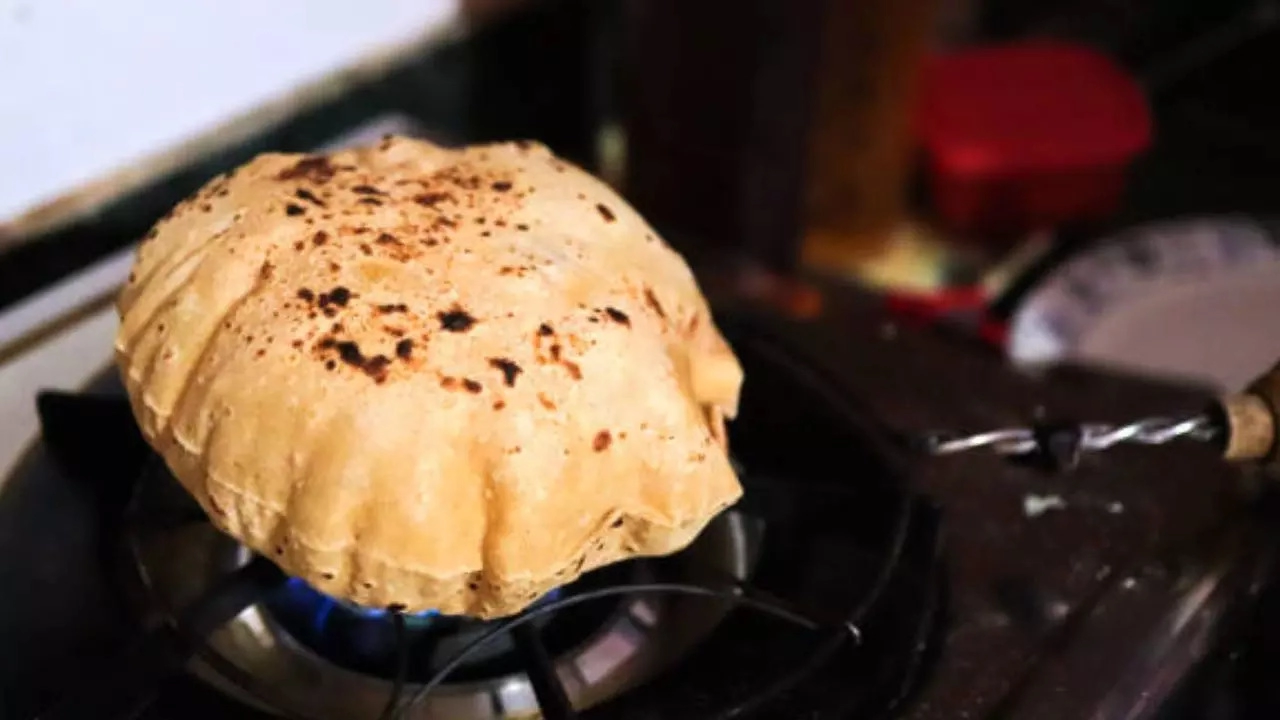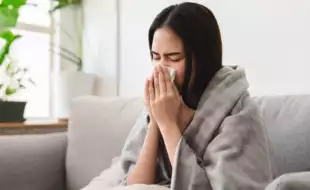Can Cooking Roti On Direct Flame Leads To Cancer? Expert Weighs In
Sep 06, 2024
News

Can Cooking Roti On Direct Flame Leads To Cancer? Expert Weighs In (Image Credits: iStock)
Roti or phulka is a part of every Indian family’s staple diet. Cooking rotis over a direct flame has been a regular practice as many people like the distinct taste, texture, and mild charring that the direct heat imparts to the roti. However, there have been concerns that cooking roti on a direct flame can produce carcinogenic compounds that can cause cancer. These chemical compounds arise when the roti is subjected to high temperatures and undergoes a process known as pyrolysis. But is this really true? We got in touch with Dr Babita Bansal, Senior Consultant Radiation Oncology, Andromeda Cancer Hospital Sonipat who explains that cooking roti on direct flame may lead to cancer.
Dr Babita explains that foods cooked over a direct flame are subjected to high temperatures, which may cause certain chemicals to develop. “In particular, excessive heat can cause the development of acrylamide, a chemical molecule that the International Agency for Research on Cancer (IARC) has designated as a possible human carcinogen. Acrylamide is mostly found in wheat, which is the main constituent in rotis,” she said.
“Cooking food at high temperatures can also produce heterocyclic amines (HCAs) and polycyclic aromatic hydrocarbons (PAHs), in addition to acrylamide, particularly when there is direct contact with an open flame. It has been demonstrated that PAHs and HCAs are both mutagenic, which means they can alter DNA in ways that may raise the risk of cancer,” she further explained.
Possible Risks Of Cancer
“These dangerous chemicals occur, which is why cooking rotis over a direct flame is a problem. When cooked at high temperatures, starchy foods are the primary source of acrylamide. On the other hand, while frying meat is more frequently linked to the formation of PAHs and HCAs, these compounds can also occur in other diets, such as those high in proteins and carbs,” Dr Babita said.
Research has indicated that exposure to elevated amounts of acrylamide in animal models can heighten the likelihood of several forms of cancer. To prove a conclusive connection, more research is necessary as the evidence in humans is less apparent. In a similar vein, research on both humans and animals has linked PAHs and HCAs to a higher chance of developing malignancies, including those of the stomach, liver, and colon.
How To Reduce The Risk Of Cancer?
Dr Babita shares tips to reduce the possible cancer risks connected to cooking rotis over a direct flame:
1. Reduce The burning: Make an effort to keep the roti from burning or becoming overly charred. To guarantee consistent cooking and lower the risk of charring, flip the roti often. Minimizing exposure to hazardous substances can also be achieved by removing burned areas before eating.
2. Eat rotis in moderation if you like the way they taste better when cooked over direct heat. In order to reduce your total exposure to potentially dangerous substances, balance your diet with a range of meals.
3. Other Cooking Techniques: Rather than cooking rotis directly over the flame, think about cooking them on a tava (griddle). By facilitating consistent cooking without subjecting food to intense heat, the tava helps prevent the production of PAHs and acrylamide.
4. Dietary Considerations: Include foods high in antioxidants in your diet, like fruits and vegetables. Antioxidants may lessen the risk of cancer by assisting in the neutralization of free radicals and the reduction of oxidative stress.
“It is not yet shown that cooking rotis over a direct flame increases the risk of cancer, although some evidence suggests that doing so may cause potentially hazardous chemicals to develop. However, caution is advised due to the potential for acrylamide, PAHs, and HCAs to develop. You may still enjoy your rotis with less risk by avoiding over-charring, trying different cooking techniques, and eating a balanced diet. Moderation is essential, as it is with many dietary issues, and making educated decisions can improve long-term health,” Dr Babita said.
Get Latest News Live on Times Now along with Breaking News and Top Headlines from Diet, Health and around the world.



